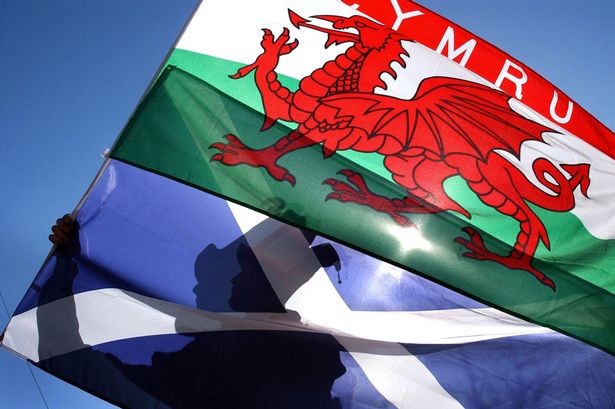Dear Badger,
Brexit could well see the dissolution of the UK as we know it, and the hubris of the ruling elite is what will have led is there. For far too many years has the Westminster bubble been shielded by from the full force of outside influence, and for far too long have the English basked in cultural indifference to the country’s constituent parts, and the plight of their people. It’s about time the nation’s cast in the shadow of England’s periphery step forward and take control for their own affairs.
While this may not be the ideal situation, for anyone involved, it is the only way the extreme inequality in the UK can begin to be addressed.
While this may not be the ideal situation, for anyone involved, it is the only way the extreme inequality in the UK can begin to be addressed.
At times, I’ve often felt sorry for the English, whose national identity is often espoused in ugly displays of xenophobia: a nation in denial that its favourite dish is curry, would rather celebrate St Patrick’s day than St George’s, whose traditional culture is often lost, bound up in empty rose tinted dreams of a ‘great’ Britain that was. The British identity has always been a veil in which England has been comfortably wrapped up in. The notions that drive the idea of a British identity are often lost on those who reside in the hinterlands, those who who feel that Westminster doesn’t speak for them.
Historically, the numbers have been small, but the consecutive failures of governments have seen a refusal to address the cries of this sometimes vocal minority; the political turbulence of Brexit has seen their numbers grow, who knows how far the crest of this new wave of resurgent self determination will break across the tumultuous global political landscape.
Nicola Sturgeon was right to call for a more inclusive future for Scotland when she said: “Theresa May’s vision of Brexit Britain is a deeply ugly one – a country where people are not judged not by their ability or their contribution to the common good but by their birthplace or their passport”. Her call for an “inclusive, tolerant and just society” gave me hope for progressive politics tasking shape on these islands.
Nationalism doesn’t need to be ugly, as its bloody face has so often taken shape in during the 21st century. The rhetoric around Welsh and Scottish nationalism is about taking responsibility for ourselves, it’s not about who we are, but where we are going, and those who are willing to join, can come along.
We’ll even provide a National Health Service.
We’ll even provide a National Health Service.
Yours sincerely,
Raymond



What a deeply thoughtful and insightful comment from Raymond here. In the Scottish independence campaign we have been the target of an ongoing assault by the British government and media for our ‘nationalism,’ a constructed identity that has been defined for us and not by us. The Butterfly Rebellion is a campaign for the self-determination of Scotland which – like all other groups in the independence movement – advocates separation from Westminster rule without imagining anything of Scotland or Scottishness as exceptional or superior. This is about a nation of 5.1 million people – of all racial, religious, ethnic, and cultural backgrounds who call Scotland home – who desire to govern themselves and be responsible for their own resources and their own future. It is so encouraging to read this coming from our friends at the University of Sussex. Thank you.